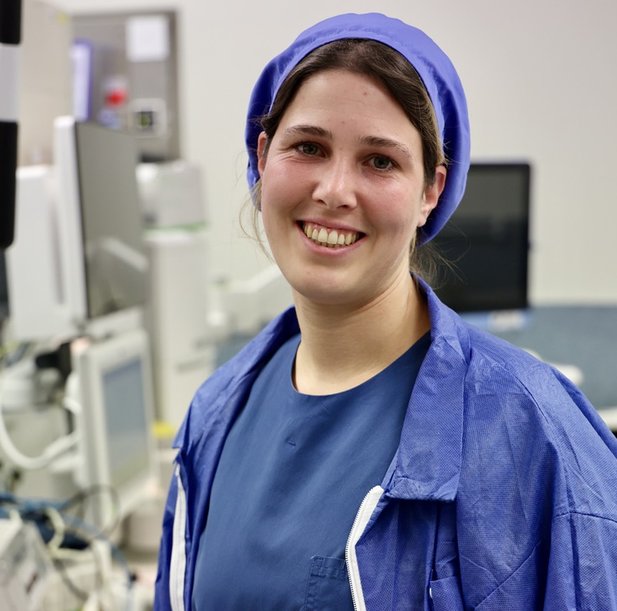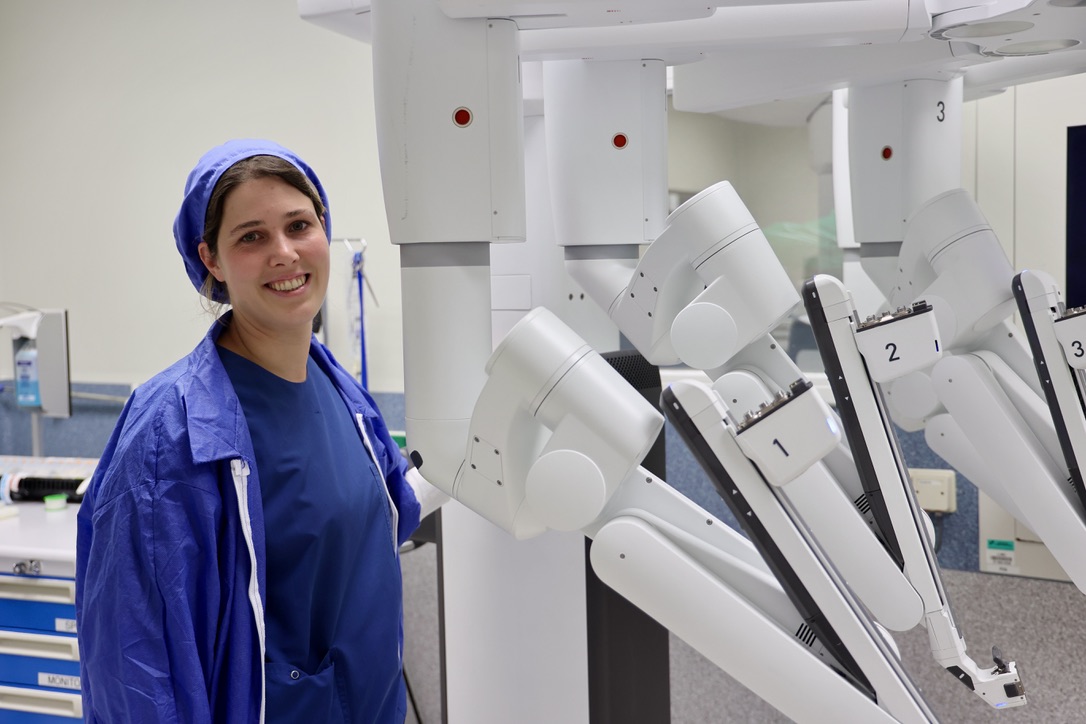Anneke Schouten
What exactly do you do at the cutting edge of technology and healthcare?
At the very first lecture for my master’s degree in biomedical engineering, it was stated that doctors and engineers do not speak the same language. And that is why it’s quite difficult to develop technology that actually helps in practice. That’s where I saw my two master’s degrees – I also studied science communication – converge and I chose it as the subject of my PhD.
Technology already plays a very important role in healthcare and that will only increase. This will make healthcare better, more precise and more efficient, something that is desperately needed. Although there is always a group of enthusiasts working on it in the short term, too often we see new developments being pushed aside in the hospital over the long term. I think that will change if we design with the facilitation of the entire medical team in mind. We too often focus on the surgeon/specialist, but I want to focus on the surgical assistants, who keep things running.
To do this, I film operations in which different levels of technology are used: open operations, minimally invasive and minimally invasive with the Da Vinci robot. I analyse the relationship between technical and medical procedures, and interview the assistants about how they experience their work. My goal is to publish a design guide that allows engineers to start designing for the entire medical team. This is important for job satisfaction and the retention of skilled staff.
It also aligns well with the research of my health ambassador John van den Dobbelsteen. He’s looking at work processes in the operating theatre in general and how they can be automated, for example with AI. Within that context, I focus on the social side.

What’s your experience of the medical world?
Healthcare professionals are very driven people persons who tend not to bring up issues. They have long since found a workaround for them because there is usually a patient waiting. It’s a nice challenge to make a difference using technology. But it is certainly not easy, because the technology must be completely free of errors. There are extremely high demands placed on the precision and quality you have to deliver.
And you might think that the surgical assistants welcome me with open arms, but many of them find it rather stressful. They are worried that, as an engineer, I am there to check whether they’re still necessary or to record a mistake on video. It took a lot of effort to gain their trust and be allowed to conduct this research. But I anonymise everything and am really there for them.
Do you have a top tip for engineers who already work or want to work in the medical domain?
You need proper awareness of the cultural difference and empathy for the daily lives of the medical professionals. It’s only after carefully analysing the influence of the technology on their work that you begin to see what’s going on and then they can really open up to you. So it involves being there a lot and not just showing up every now and then with a PowerPoint full of graphs. That is also completely the wrong (engineering) language.
Technical innovations still too often focus only on the medical specialist
